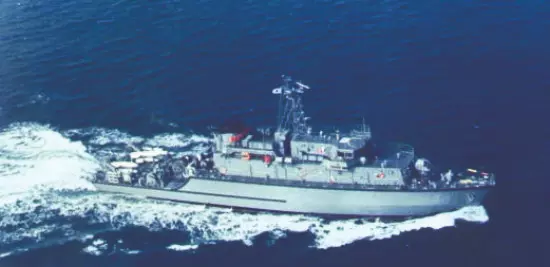Navy to enhance underwater defence with Rs 44,000 cr mine countermeasures fleet

New Delhi: In a decisive step to strengthen India’s naval security, the Defence Acquisition Council (DAC), headed by Defence Minister Rajnath Singh, is soon to give the go-ahead for purchasing 12 state-of-the-art Mine Countermeasures Vessels (MCMVs) worth Rs 44,000 crore for the Indian Navy, as per sources. It further verifies that the Acceptance of Necessity (AoN), due to be released shortly, will launch the biggest modernisation of the Navy’s underwater warfare capabilities in decades, designed to neutralise threats posed by sea mines and protect strategic waterways. The ships, intended to replace the Navy’s elderly Soviet-era minesweepers, will harness the latest technologies to detect, identify, and destroy sea mines posing a threat to commercial shipping routes, naval bases, and key infrastructure.
With high-resolution sonar, unmanned underwater and surface drones, and mechanical, acoustic, and magnetic mine-clearing systems in modular form, the MCMVs will be powered on a CODOE (Combined Diesel or Electric) propulsion system, which will allow for silent operations essential to mine-hunting operations. With a displacement of 2,800 tons and a length of up to 87 meters, the vessels will marry stealth capabilities—such as low radar cross-sections and low magnetic signatures—to a 76 mm Super Rapid Gun Mount for self-protection, guaranteeing survivability in hostile waters.
This purchase is not merely about replacing ageing platforms but about gaining supremacy in undersea warfare, defence experts highlighted. Furthermore, The Indian Ocean Region’s security depends on our capacity to provide open access and thwart coercive mining by hostile powers. The urgency stems from increasing alarm about China’s growing undersea and naval footprint in the region, as well as long delays in previous procurement initiatives, including a halted 2015 partnership with South Korea’s Kangnam Corporation.
In line with India’s self-reliance policy, a major portion of the ships will be locally built with assistance from international defence companies, sources said, and enhancing private sector defence capabilities and creating high-skilled jobs. The project will give a boost to India’s drive towards self-reliance in defence technology while filling lacunas in maritime preparedness.
Following DAC anticipated approval, the Navy is expected to issue a global Request for Proposal (RFP), with contract negotiations and construction slated to begin within a year. The first vessels are anticipated to join the fleet within five years, enhancing India’s ability to secure vital sea lanes.
Further, the Rs 44,000 crore investments underscore New Delhi’s resolve to counter 21st-century maritime threats amid rising geopolitical tensions.



